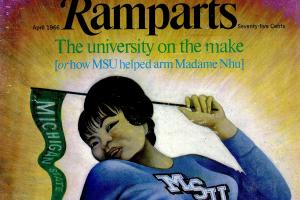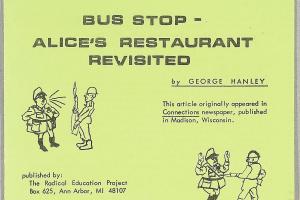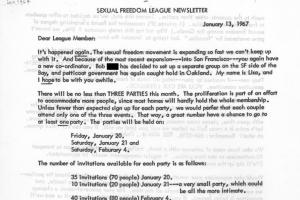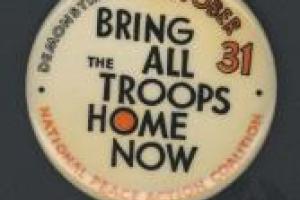
The Sixties: Primary Documents and Personal Narratives, 1960 to 1974 documents the key events, trends, and movements in 1960s America—vividly conveying the zeitgeist of the decade and its effects into the middle of the next. Through letters, diaries, memoirs, and oral histories; accounts from official, radical, and alternative organizations; posters, broadsides, pamphlets, advertisements, and rare materials, the collection tells the story of the 60s. Freedom rides, sit-ins, the draft, the Equal Rights Amendment, Earth Day, the Free Speech Movement, the Stonewall riots, Woodstock, the Summer of Love, the Space Race. . . the events of the 60s tested and defined the core values of America. But despite our familiarity with names, dates, and basic facts, there has been no single, comprehensive resource for study in this area. With The Sixties, researchers will now have personal accounts by the people who experienced events firsthand.
Much of the content in The Sixties is previously unpublished, ephemeral, or hard to access. In many instances culled from small local and personal archives, the materials identify the spirit of the era across place and time—particularly important for locations that have escaped popular study until now. Users will learn about student activism not just in Berkeley and New York City, but also across the Midwest and the South, in universities both urban and rural. Many of the materials are held in small and widely dispersed collections, inaccessible except onsite and yet essential for a comprehensive understanding of how social changes and movements affected people across the US of all races, classes, and genders.
Carefully crafted under the guidance of our editorial advisors—led by Alexander Bloom of Wheaton College, editor of Takin’ It to the Streets: A Sixties Reader (Oxford University Press, 1995), Rick Burke of the Statewide California Electronic Library Consortium, and Doug Rossinow of Metropolitan State University—the content touches on a broad range of themes including Civil Rights; the Vietnam War; the New Left and emerging neo-conservatism; the environmental movement; the women’s movement and second-wave feminism; law and government; gay and lesbian activism; student activism; the media; arts, music, and leisure; the counter-culture; and technological changes.
Content Type: artwork, books, brochures and advertisements, comics, diaries and memoirs, documentaries, ephemera, essays, government/institutional documents, interviews, letters, oral histories, pamphlets, periodicals, posters, song lyrics, speeches, and more.
Topics: abortion, anarchism, capitalism, censorship, civil rights, communism, community events, draft evasion, elections, hippies, illegal drugs, imperialism, international relations, labor and unions, laws and legislation, military draft, nuclear warfare, pacifism, police brutality, political demonstrations, racism, radicalism, religion, riots, rock music, sexuality, social activism and activists, socialism, students, war, and more.

Ramparts was a glossy illustrated American political and literary magazine, published from 1962 to 1975 and closely associated with the New Left political movement. Ramparts was an early opponent of the Vietnam War, exposing programs that were fronts for CIA covert operations and denouncing the US use of napalm in Vietnam.

The Radical Education Project was an undertaking of the Students for a Democratic Society in the 1960s for research and training. One of its larger aims was outreach to create and support a new generation of radicals, often through publications by the SDS. The selection of pamphlets and treatises here focus on topics like imperialism, class conflict, women's liberation, and capitalism.

The Sexual Freedom League (SFL) was founded in New York City in 1963, but became more associated with the San Francisco Bay area when one founding member, Jefferson Poland moved there. With the Vietnam War, women’s movement, and the counterculture scene, the 1960s proved to be prosperous time for the SFL. Originally formed to promote the political ideals of sexual freedom, the SFL quickly became known as an organization that sponsored orgies and other sex-related parties. As the SFL expanded into a nationwide network of chapters, the original political ideals became less emphasized causing friction within the organization. By the late 1970s, the number of members in the SFL had dwindled.

This set of buttons for The Sixties was chosen from eighty-two ephemeral and political buttons collected between the 1950s and 2000 by Nettie Feinberg. The “I am a Civil Rights Marcher August 28, 1963 Washington, D.C.” button was attained from Nettie Feinberg’s son, Lawrence, at the civil rights march where Martin Luther King Jr. gave his famous “I Have a Dream” speech. There are several buttons relating to the Vietnam War. The “Moratorium” and “National Strike For Peace October 15, 1970” buttons were both obtained at major rallies protesting the Vietnam War.